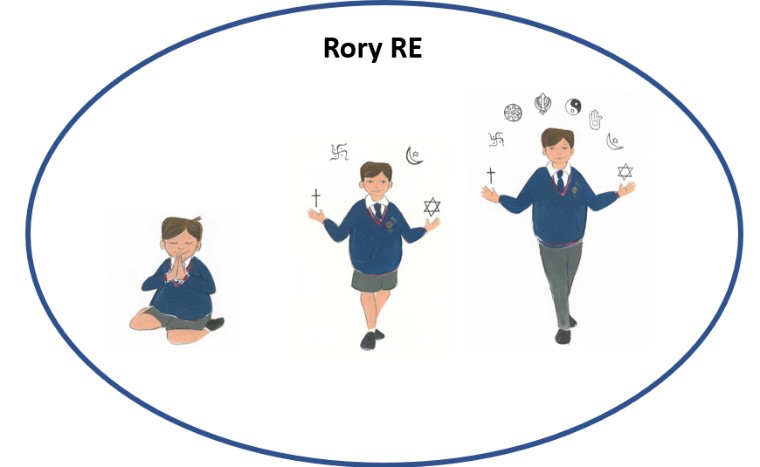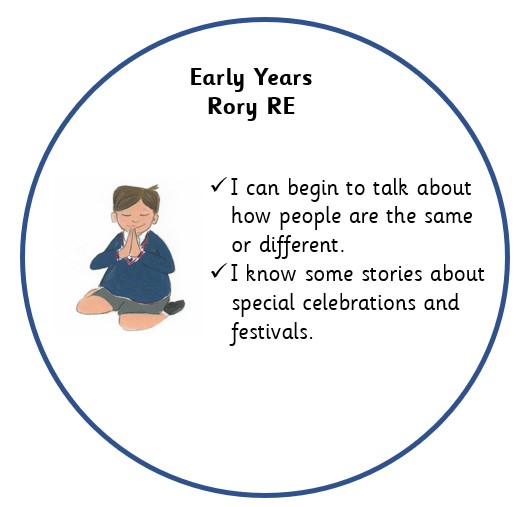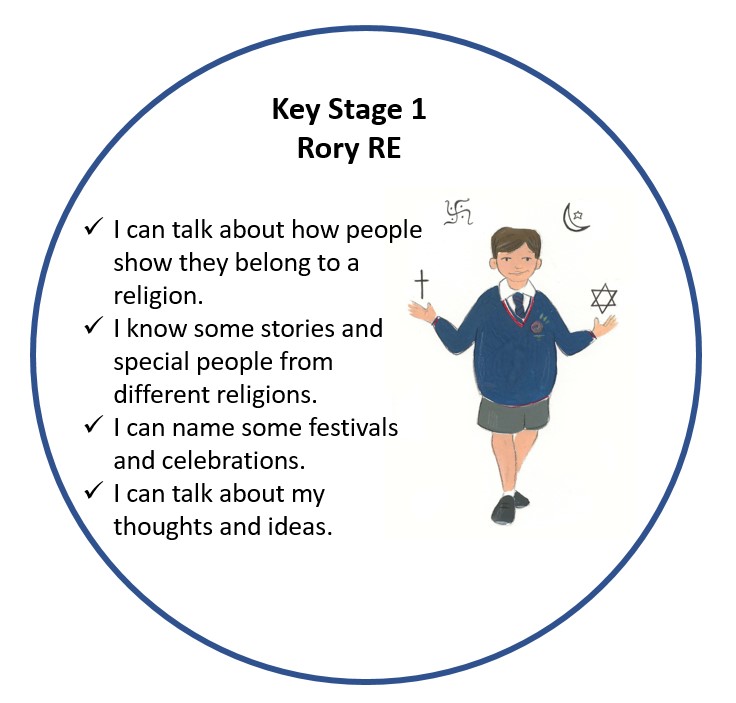
Intent: Why does our Religious Education curriculum looks like this?
At Barley Fields Primary, we believe that it is vital for our children to learn from and about religion so that they can understand the world around the. Through our Religious Education Curriculum, children develop their knowledge of the world faiths, their understanding and awareness of the beliefs, values and traditions of other individuals, societies, communities and cultures. We encourage our children to ask questions about the world and as they progress through school, to reflect on their own beliefs, values and opinions.
We base our teaching and learning style in Religious Education on the key principle that good teaching allows children to learn about religious traditions and to reflect on what religious ideas and concepts mean to them. Our teaching enables children to extend their own sense of values, and promotes their spiritual growth and development. It enables children to build on their own experiences and to extend their knowledge and understanding of religious traditions. We use their experiences at religious festivals such as Easter, Diwali, Passover etc. to develop their religious thinking. Our Religious Education curriculum is enhanced with visits to places of worship in our local area and invite representatives of local religious groups to come into school and talk to the children.
Implementation: How will we achieve this?
Our children follow a carefully structured Religious Education curriculum which has been designed to ensure children know more, do more and remember more as they progress through our school. Our content is supported by advice, requirements and guidelines presented in the Agreed Stockton-on-Tees Religious Education syllabus as well as including links to our local religious communities. We explore religious ideas, beliefs and practices along several themes which are incorporated into six fields of study and have selected the following religions for study:
| Field of Study Belonging Festivals Sacred texts Beliefs and practices Places of Worship Founders and Leaders | Religions Christianity Islam Judaism Hinduism Buddhism Sikhism |
Our Teaching Approach
RE is taught weekly or in blocks of lessons to ensure children have opportunities for a sustained period of study and have time to embed and enhance their learning. Detailed medium-term planning supports teaching, ensures continuity and carefully plans for progression and depth. Children have opportunities to use high quality resources and materials to support their learning. The medium-term planning also underpins an appropriate teaching pedagogy for effective quality first teaching in Religious Education and following this our children will have experiences and enrichment opportunities to:
- handle artefacts
- explore scared texts
- use imaginative play or drama to express feelings and ideas
- respond to images, games, stories, art, music and dance
- meet visitors from local religious communities
- make visits to religious places of worship where possible, and where not, making use of videos and the internet
- take part in whole school events- (multi-faith days, Harvest Festival, school performances)
- participate in moments of quiet reflection
- participate in assemblies
- use IT to further explore religion and belief globally
- compare religions and world views through discussion
- debate and communicate religious belief, world views and philosophical ideas and answering and asking ultimate questions posed by these.
Our children understand the core skills needed to learn in RE with the use of the school curriculum character – Rory RE. This character is regularly used to encourage children to reflect on the key skills, attitudes and knowledge needed when learning in R.E.



Our Religious Education curriculum is inclusive for all children; each lesson is sequenced so that it builds on the learning from the previous session. Where appropriate, activities are scaffolded so that all children can succeed and children may be provided with extra resources and support, such as visual prompts, so that they can reach the same learning goals as the rest of the class. There are no presumptions made as to the religious backgrounds and beliefs and values of the children and the staff. We value the religious background of all members of our school community and hope that this will encourage individuals to share their own experiences with others freely. All religions and their communities are treated with respect and sensitivity and we value the links, which are, and can be made between home, school, and a faith community.
Full details of our curriculum long term schemes of learning and curriculum pathways can be downloaded below.
Impact: How will we know that our children are achieving?
By the end of each key stage, children are expected to know, apply and understand the skills and techniques specified in the relevant curriculum plans.
Children are assessed using an internal tracking system which identifies clear and progressive end points. This ensures progress is maintained and end of key stage expectations are met by all children.
Children are assessed termly and a final summative assessment made at the end of the academic year. Children will be assessed as either Emerging, Developing, Secure or Exceeding, in accordance with Age Related Expectations.
In addition, we measure the impact of our curriculum through the following methods:
- A reflection on standards achieved against the planned outcomes;
- A celebration of learning for each term which demonstrates progression across the school (Curriculum Floor book and Display);
- Pupil discussions about their learning (Pupil Voice);
- The annual tracking of standards across the curriculum. In KS1 and KS2
NOTE: If the parents of any child attending our school wish that she/he be withdrawn from R.E., the Head teacher will be happy to arrange a meeting to discuss this situation and make appropriate arrangements for alternative activities.
